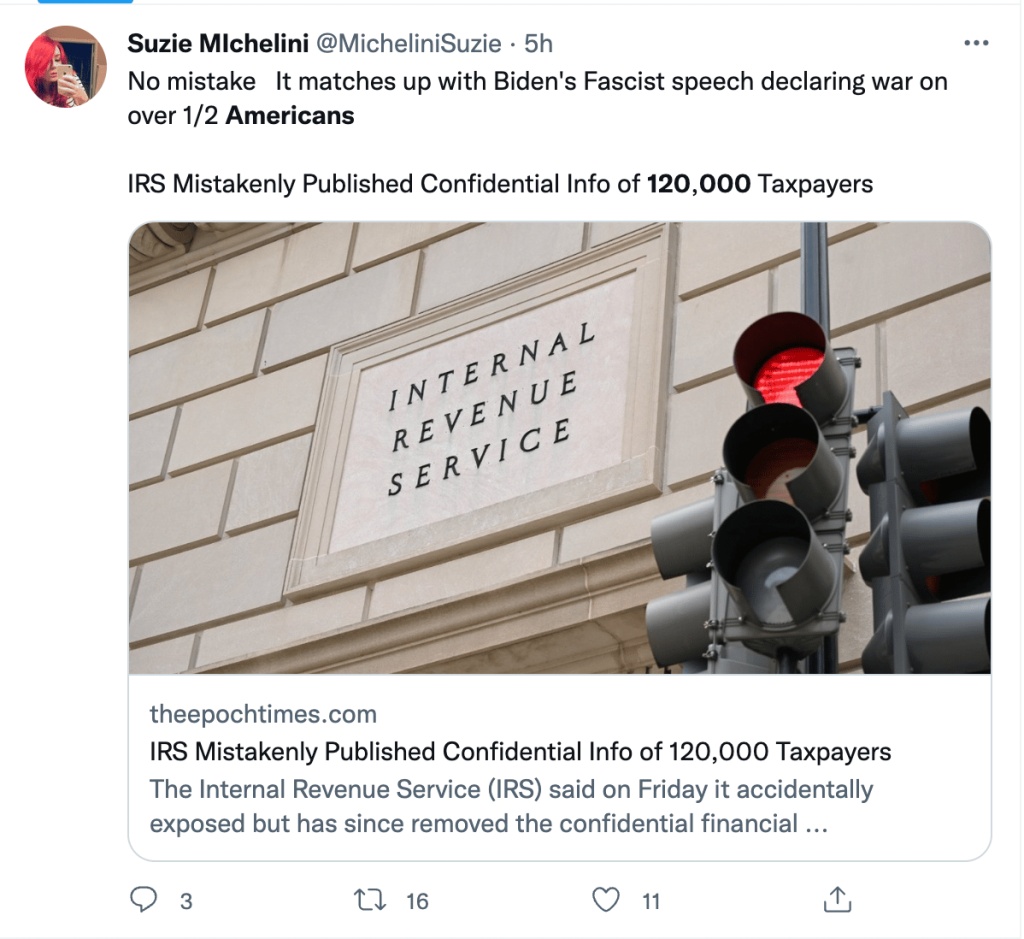The federal government’s tax collectors seem to have leaked the personal information of more than 120,000 Americans.
The Daily Caller reported, In a Friday letter to Congress, the IRS and Treasury Department blamed a human coding error from 2021, the first year that the Form 990-T was able to be filed electronically, the WSJ reported. The error resulted in nonpublic data being made available for download to users of the IRS website and was not discovered until “recent weeks,” according to the WSJ.
This small human error will likely have a major effect on some of the entities and organizations affected by the disclosure.
This specific tax form is used for tax-exempt entities like non-profits, government entities, and also retirement accounts.
The IRS does have to disclose some information relating to non-profit but there is still plenty of confidential pieces of information not meant for the public eyes.
According to the Caller the information included names, contact information as well as financial information typically not publicly obtainable. Bank information and social security numbers however remained secret.

Such a fumble could have had devastating consequences for anyone subjected to having their social security, TIN or bank account numbers released.
The IRS says that affected taxpayers will be notified “in the coming weeks” of the mistake that costs their privacy.
Weeks could be the difference between strangers obtaining private information on taxpayers unbeknownst to the filer.
The IRS will soon receive a major boost in funding after President Joe Biden signed the “inflation reduction act” which allocates roughly $80 billion to the IRS. The money will likely be used to hire upwards of 70,000 new agents.
The IRS would be smart to also use some of this money to upgrade their systems. The giver ent organization has long-standing technology problems. Their processing system is nearly 60 years old according to the Caller.
“The Treasury Department has instructed the IRS to conduct a prompt review of its practices to ensure necessary protections are in place to prevent unauthorized data disclosures.” Said a letter written by the Treasury Department.
At this time it appears that no additional comment has been made by the treasury department.


